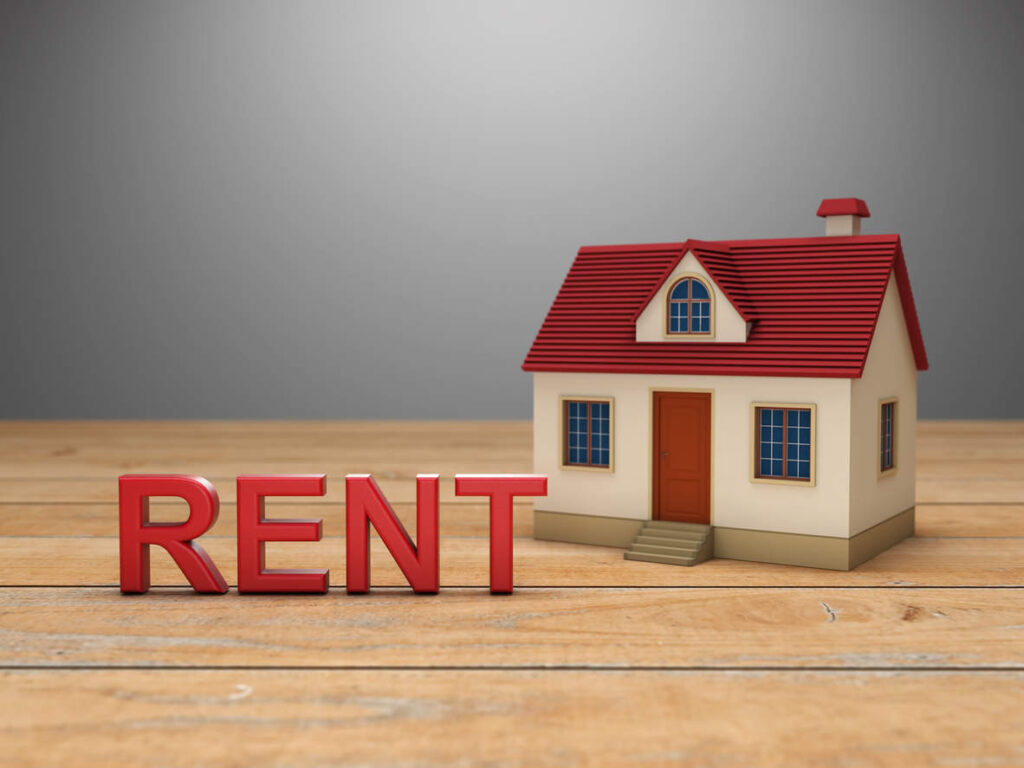Renting a house at 18 is pretty simple if you follow these steps. First, figure out how much money you have for rent, considering what you earn and spend. Get papers like proof of income and know your credit score. Look for places online, thinking about where you want to live and what you need in a home. Visit the places you like, thinking about safety and any issues.
When you apply, give them the papers they need and references. Read the lease carefully before you sign it. Get ready to pay the first and last month’s rent and a deposit. Set up your utilities and on moving day, check the place with your landlord.
How to Determine Budget for Renting at 18?
It’s crucial to be transparent and well-prepared to build trust with potential landlords and ensure a successful renting experience.
Determine Budget
Consider Income and Expenses: Begin by assessing your monthly income, including wages from a job or any other sources. Understand the stability and reliability of your income stream.
List all anticipated monthly expenses, covering essentials like rent, utilities, groceries, transportation, and potential miscellaneous costs. Be realistic and account for unforeseen expenses.
Explore Potential Support from Family or Roommates: Engage in open discussions with family members or potential roommates regarding the financial aspects of renting. Determine if there is any financial support available or if you can split costs by sharing living expenses.
Clearly establish expectations and responsibilities to ensure transparency and avoid misunderstandings in the future.
Gather Necessary Documents

Proof of Income: Collect documents that verify your income, such as recent pay stubs, employment letters, or any other proof of financial stability. This assures landlords that you have a reliable income to cover rent.
If you have a part-time job, freelance work, or irregular income, provide additional documentation to showcase your overall financial capability.
Check and Be Aware of Credit Score: Obtain a copy of your credit report to understand your credit score. Many landlords use this as a criterion for evaluating rental applications.
If you have a limited credit history, consider providing additional references or a co-signer to strengthen your application. Take proactive steps to improve your credit score if necessary.
What Online Platforms Offer the Best Rental Property Listings?
Effectively navigating the property search phase involves leveraging online resources, considering the broader neighborhood context, and conducting thorough on-site visits.
Utilize Online Platforms
Diversify Your Online Search: Explore various online platforms dedicated to real estate listings, including websites, apps, and social media groups. Different platforms may feature unique listings, providing a comprehensive view of available rental properties.
Utilize filters and search options effectively to narrow down choices based on your preferences, such as budget, location, and specific amenities.
Read Reviews and Gather Insights: Take advantage of online reviews and testimonials from previous tenants. These can offer valuable insights into the property management, neighborhood dynamics, and any potential issues with the rental.
Pay attention to reviews that highlight both positive and negative aspects, helping you make informed decisions about whether a particular property aligns with your needs.
Consider Location and Amenities
Evaluate Neighborhood Characteristics: Look beyond the property itself and assess the neighborhood’s safety, accessibility, and overall atmosphere. Consider proximity to work or school, public transportation options, and the availability of essential services.
Research local amenities such as grocery stores, healthcare facilities, parks, and entertainment options to ensure the area aligns with your lifestyle.
Prioritize Amenities Based on Lifestyle: Create a list of amenities that are essential for your comfort and well-being. This could include features like parking availability, laundry facilities, pet-friendly policies, or outdoor spaces.
Prioritize these amenities based on your lifestyle preferences, recognizing that the right combination can significantly enhance your living experience.
Schedule Visits to Potential Homes
Plan Visits Strategically: Once you’ve identified potential properties online, schedule visits to those that align closely with your criteria. Plan visits during different times of the day to assess factors like noise levels, traffic, and overall ambiance.
Bring a checklist of key considerations to ensure you cover all aspects during your visit, including the condition of the property and any existing maintenance issues.
Engage with Landlords or Property Managers: Use the opportunity to engage with landlords or property managers during your visits. Ask questions about the rental terms, lease agreements, and any specific policies.
Clarify doubts and gather additional information that may not be evident from online listings, fostering a direct and transparent communication channel.
How to Provide Required Documents and References for Rental Applications?
Navigating the application process involves meticulous attention to detail, from providing comprehensive documentation to thoroughly understanding the lease terms and associated fees.
Provide Required Documents and References
Proof of Financial Stability: Submit comprehensive proof of your financial stability, including documents such as recent pay stubs, employment verification letters, or proof of other income sources.
This assures landlords that you can reliably meet rent obligations. Include personal and professional references to vouch for your character and reliability as a tenant. Ensure that these references are readily available and willing to verify your suitability as a renter.
Rental History and Recommendations: Compile a rental history, detailing previous addresses, landlords, and contact information. This history provides insight into your experience as a tenant and allows landlords to assess your track record.
If possible, include recommendation letters from previous landlords highlighting your responsible behavior, timely payments, and positive rental history.
Thoroughly Read and Understand Lease Terms
Clarify Lease Duration and Renewal Options: Pay close attention to the lease duration and any renewal options. Understand the terms related to lease extensions, potential rent increases, and the process for terminating or renewing the lease agreement.
Clarify any clauses related to breaking the lease early, ensuring you are aware of the associated consequences and obligations.
Review Maintenance and Repair Policies: Examine the lease for details regarding maintenance responsibilities. Understand who is responsible for specific repairs and how maintenance issues are addressed.
Seek clarification on the process for reporting and resolving maintenance issues to ensure a clear understanding of the landlord-tenant relationship in this regard.
Be Prepared for Application Fees
Understand the Purpose of Application Fees: Application fees are typically charged to cover the costs associated with processing rental applications, including background checks and administrative expenses. Understand the purpose of these fees and inquire about the specific services they cover.
Clarify whether the application fee is refundable or non-refundable, and under what circumstances a refund may be applicable.
Plan for Additional Costs: In addition to the application fee, be prepared for other potential costs, such as security deposits and any advance rent payments. Understanding and budgeting for these costs in advance helps prevent financial surprises during the application process.
Inquire about the accepted payment methods for application fees and other upfront costs to ensure a smooth transaction.
How to Set Up Utilities and Amenities for a New Rental Efficiently?

By approaching these preparations with foresight and attention to detail, you can ensure a seamless and comfortable start to your tenancy.
Set Up Utilities and Amenities
Contact Utility Providers in Advance: Identify the utility providers for services such as electricity, water, gas, internet, and cable. Contact them ahead of time to schedule the setup of these essential services.
Ensure that utilities are transferred into your name, and inquire about any required deposits
or activation fees.
Consider Amenities and Additional Services: Explore available amenities offered by the property, such as parking spaces, laundry facilities, or community spaces. Familiarize yourself with any associated rules and regulations.
If applicable, arrange for the installation or activation of amenities that enhance your living experience, such as setting up internet services or cable television.
Understand and Prepare for Move-In Costs
First and Last Month’s Rent: Clarify the specific terms related to the payment of rent. Understand whether the landlord requires both the first and last month’s rent upfront or if they follow a different payment structure.
Ensure that you have the necessary funds available to cover these initial rent payments. If possible, communicate with the landlord to confirm the preferred method of payment.
Security Deposit: Understand the purpose and conditions of the security deposit. Typically, this deposit serves as a financial safeguard for the landlord against potential damages or unpaid rent during the lease term.
Inquire about the amount of the security deposit, the timeline for its return at the end of the lease, and any specific conditions under which deductions may be made. Take note of the condition of the property during the initial inspection to avoid disputes over deposit deductions later.
Budget for Additional Move-In Costs: Beyond rent and security deposit, budget for any additional move-in costs, such as cleaning fees or pet deposits if applicable. Having a clear understanding of these upfront expenses prevents financial strain during the initial stages of occupancy.
Create a comprehensive budget that includes all anticipated move-in costs, ensuring that you are financially prepared for a smooth transition into your new home.
FAQ’s
Can you get a rental at 18 in Miami?
Yes, many places allow renting at 18, but requirements may vary.
Can a 16 year old live on their own in Florida?
Generally, a 16-year-old cannot legally live alone in Florida.
Can you rent a house at 18 in Georgia?
Yes, in many places you can rent a house at 18, but check individual policies.
Can an 18 year old rent a car in Florida?
Yes, most car rental companies allow 18-year-olds to rent with additional fees.
How do I get around 3x the rent?
To meet the 3x rent requirement, consider getting a roommate or showing additional income sources.
Do I need a license to rent my house in Florida?
A license is generally not required to rent out a house in Florida, but local regulations may apply.
Final Words
Finding a place to live at 18 involves planning your budget, looking for the right home online, and going through the application process. It’s important to gather the necessary documents, understand the lease terms, and be prepared for any fees.
Once you’ve got all that sorted out, it’s time to set up utilities and get ready for move-in day. Remember, clear communication is key throughout the process. Good luck with your new home!
